By Judith Cartwright | June 28, 2024
The role of asset management is evolving fast from profit margins to total revenue optimization.
Note: The following contributed perspective was submitted through ISHC.
Hotel asset management has undergone a significant transformation over the past few years, and the movement is global. The U.S. is leading the way, followed by Europe, and the Middle East, particularly the GCC market (Saudi Arabia, Kuwait, the United Arab Emirates, Qatar, Bahrain and Oman) is catching up quickly.
It needs to be because no other region in the world has witnessed such an unprecedented surge in hotel supply, led by the luxury and ultra-luxury segments. Against this fiercely competitive backdrop, the role of hotel asset managers with a commercial background has never been more crucial. The evolution of their responsibilities and strategies is now shaping the future of hospitality in this dynamic market.
Traditionally, hotel asset management focused on profit margins and cost control. However, there has been a significant shift towards total revenue management (TRM), a holistic approach that optimizes revenue across all income streams. This evolution is particularly relevant in the Middle East, where the hotel industry is fiercely competitive and dominated by high-end properties. Modern asset management now requires a commercial mindset, integrating strategies that enhance topline revenues across the board.
Until recently, asset managers focused on costs and, during tough times, on cost-cutting rather than identifying ways to increase top-line revenues and improve profits. This requires creative, unconventional thinking.
For example, a client we recently supported redefined an underutilized and unprofitable space by converting a storage room into a high-end fast-food restaurant, significantly increasing revenue per square meter.
Furthermore, commercially minded asset managers can review and critique the commercial plans of management companies and evaluate if the planned strategies align with the sales and marketing budget. They should assess whether these strategies translate into optimized revenues, considering the cost-per-acquisition by target market and guest demographic.
A commercially minded asset manager brings immense value to both owners and management companies. Their role is critical in navigating the complexities of the hospitality market, especially in the Middle East. By focusing on TRM, asset managers ensure that all revenue streams are maximized, not just room rates, as was traditionally the case. This new approach includes optimizing food and beverage outlets, spa services, and ancillary revenue streams such as event spaces.
Moreover, when asset managers understand the operational intricacies of a hotel, they can implement strategies to reduce costs without compromising the guest experience, maintaining high service standards while enhancing profitability.
In a market where luxury experiences are paramount, asset managers must make strategic, targeted investments across various departments, from sales and marketing to PR and more. For instance, they must weigh the benefits of high-cost trade events against unique, cost-effective experiences for top partners and guests. Continually asking questions such as, “How does my hotel benchmark against the competition?” and “What differentiates our property?” enables asset managers to develop creative strategies that protect and enhance brand integrity, especially during challenging economic times.
The Middle East, led by cities like Dubai and Riyadh, has experienced an unprecedented boom in hotel development. This rapid growth has created an intensely competitive market where only the strongest survive, necessitating a sophisticated approach to asset management. In this environment, asset managers must distinguish themselves by adopting innovative strategies. Traditional revenue strategies are no longer sufficient in a market saturated with luxury offerings. Asset managers must, therefore, develop innovative approaches to capture market share, such as dynamic pricing models and bespoke packages tailored to high-net-worth individuals.
Another key consideration is embracing digital transformation to enhance the guest journey. Asset managers need to understand and implement the latest technologies, from advanced booking platforms to personalized guest services facilitated by AI. With global attention increasingly focused on sustainability, Middle Eastern hotels can stand out by integrating robust corporate social responsibility (CSR) programs. Asset managers play a vital role in ensuring these initiatives are implemented and effectively marketed to attract environmentally conscious travelers.
Another central aspect of modern asset management is future-proofing assets against economic downturns and market fluctuations. This involves developing contingency plans and flexible operational models that can quickly adapt to changing market conditions. By focusing on holistic revenue optimization, operational efficiency, strategic spending, and market differentiation, asset managers can add significant value to hotel owners and management companies.
The shift towards total revenue management, the need for commercially minded asset managers, and the adoption of innovative strategies are essential for navigating Middle Eastern hospitality’s competitive and luxury-dominated landscape. By concentrating on these areas, asset managers can ensure hotel assets’ long-term success and sustainability.
As the Middle East continues to evolve as a premier global destination, the role of the hotel asset manager will become even more significant. By embracing these changes and leveraging their expertise, asset managers can help drive the region’s hospitality industry to new heights, ensuring that properties survive and thrive in this dynamic market.
Judith Cartwright is the founder and managing director for Dubai-based Black Coral Consulting. She has over 20 years of experience in the hospitality industry and is also the chair of the revenue optimization advisory board for HSMAI Middle East.


